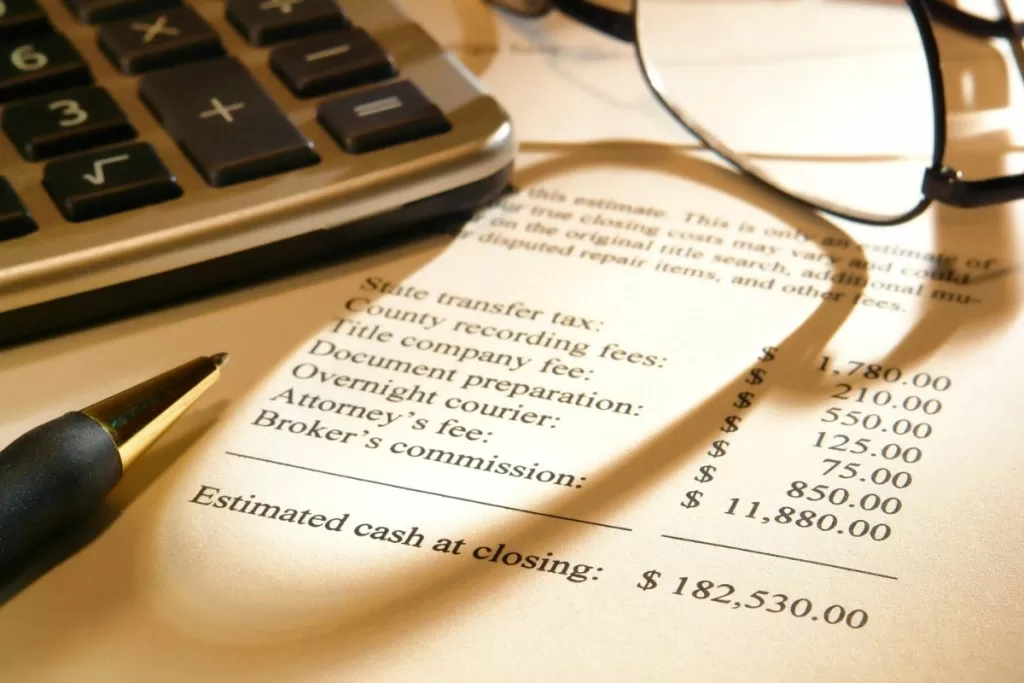When it comes to buying a home, there are a lot of costs to consider. From the down payment to closing costs, it can be overwhelming to keep track of everything. And one question that often comes up is, “Is the down payment included in closing costs?” The simple answer is no, they are not the same thing. It’s easy to get them confused because they are both big upfront costs in the homebuying process. But understanding the difference between the two can help you better prepare for the financial aspects of buying a home.
First, let’s define what exactly a down payment and closing costs are. A down payment is the initial payment you make towards the purchase of a home. It is typically a percentage of the total cost of the home and is paid upfront at the time of purchase. On the other hand, closing costs are the fees associated with finalizing the sale of a home. These can include appraisal fees, title insurance, attorney fees, and more. Closing costs are typically paid at the time of closing, which is when the ownership of the home is officially transferred to the buyer.
So why do people often confuse the two? One reason is that both the down payment and closing costs are paid upfront and can be a significant amount of money. However, the main difference is that the down payment goes towards the purchase of the home, while closing costs are fees associated with the transaction.
Another reason for the confusion is that some lenders may require the buyer to pay both the down payment and closing costs at the time of closing. This can make it seem like they are the same thing, but it’s important to remember that they serve different purposes.
Now that we’ve established the difference between the two, let’s dive deeper into each one and how they can impact your homebuying journey.
The Down Payment
The down payment is a crucial part of the homebuying process. It is the initial investment you make towards the purchase of your dream home. The amount of the down payment can vary depending on the type of loan you are using and your financial situation. In general, the down payment is typically between 3-20% of the total cost of the home.
One of the main benefits of a larger down payment is that it can lower your monthly mortgage payments. This is because a larger down payment means you are borrowing less money from the lender. It can also help you secure a lower interest rate, which can save you thousands of dollars over the life of your loan.
Saving for a down payment can be a daunting task, but there are options available to help make it more manageable. Some buyers may qualify for down payment assistance programs, which can provide financial assistance to help cover the down payment. It’s also important to note that some loans, such as FHA loans, have lower down payment requirements, making homeownership more accessible for those with limited funds.
Closing Costs
Closing costs are the fees associated with finalizing the sale of a home. These fees can vary depending on the location of the home, the type of loan, and other factors. On average, closing costs can range from 2-5% of the total cost of the home. This means that on a $300,000 home, closing costs can be anywhere from $6,000 to $15,000.
Some common closing costs include appraisal fees, title insurance, attorney fees, and loan origination fees. These fees can add up quickly, so it’s essential to budget for them when planning to buy a home. It’s also worth noting that some closing costs can be negotiated with the seller, so it’s always a good idea to discuss this with your real estate agent.
Is the Down Payment Included in Closing Costs?
Now that we’ve established the difference between the two, it’s clear that the down payment is not included in closing costs. The down payment goes towards the purchase of the home, while closing costs are fees associated with the transaction. However, it’s worth noting that some lenders may require the buyer to pay both the down payment and closing costs at the time of closing. This can make it seem like they are the same thing, but it’s important to remember that they serve different purposes.
In conclusion, the down payment and closing costs are two separate costs that are both important to consider when buying a home. Understanding the difference between the two can help you better prepare for the financial aspects of homeownership. And while they may seem like significant upfront

